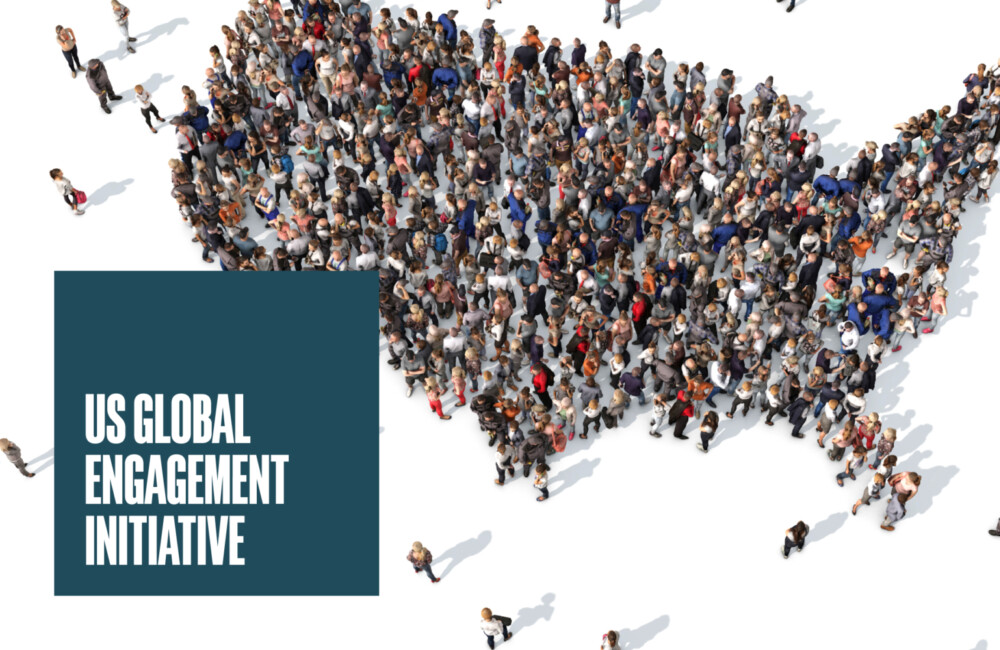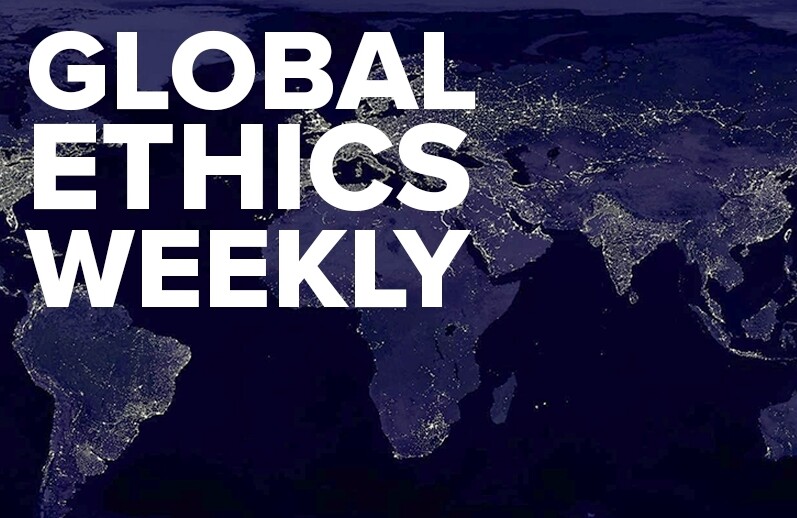Framing ethical perspectives
Multilateralism refers to a group of nations working together for a common goal. It is at the heart of international relations as nation-states form alliances with like-minded countries to take on global issues, such as climate, emerging technology, inequality, and collective security. Carnegie Council sees multilateralism as essential to generating solutions to global problems and a critical component of an ethical present and future.
Featured Multilateralism Resources
Inclusivity, AI & climate governance, and more
FEB 27, 2024 • Video
A Carnegie Council Conversation with the UK Home Secretary
MAR 28, 2024 • Video
Unlocking Cooperation: The Global South and Global North
In the inaugural panel of the "Unlocking Cooperation" series, Ramu Damodaran leads a discussion on forging a path forward for Global South/North collaboration.
OCT 18, 2023 • Video
Unlocking Cooperation: A Global Ethics Day Special Event
In this keynote event for Global Ethics Day 2023, Carnegie Council President Joel Rosenthal led a conversation on the psychology behind cooperation; ways that states, institutions, ...
Subscribe to the Carnegie Ethics Newsletter for more on ethics and international affairs
Related Initiatives
Model International Mobility Convention
The primary goal of the Model International Mobility Convention (MIMC) is to formulate new rules for migration and asylum that can benefit both migrants and refugees as well as their states of origin, transit, and destination.
Carnegie Ethics Accelerator
The Carnegie Ethics Accelerator is a new kind of incubator designed to empower ethics in the face of swiftly evolving challenges in technology and public policies.
Explore Our Multilateralism Resources
OCT 5, 2018 • Podcast
An Update on Pakistan, with Ahmed Rashid
Acclaimed journalist Ahmed Rashid discusses Pakistan's new populist prime minister, Imran Khan, whom he considers woefully unprepared. He also examines Pakistan's debt-ridden economy and Pakistan's ...

OCT 3, 2018 • Article
Empty Pews in the Church of Atlanticism
Timothy Garton Ash uses the image of "empty pews" to describe a declining commitment, not only on the part of the U.S. public, but ...

OCT 2, 2018 • Podcast
All Options Are on the Table: Threats and Coercive Diplomacy in Foreign Affairs
Are there ever justifiable reasons for issuing threats to achieve foreign policy objectives? In particular, are President Trump's threats against Iran justified? Don't miss this ...

SEP 25, 2018 • Podcast
Making Foreign Policy Relevant Again, with Asha Castleberry & Ali Wyne
Has a gap opened up between the U.S. national security community and the general public over foreign policy? If so, why? How can we ...

SEP 24, 2018 • Article
The Ethics of the "Doorstep"
The "doorstep test" requires policymakers to be able to articulate how, and to what degree, something happening in the world connects to the day-to-day experience, ...

SEP 21, 2018 • Podcast
Global Ethics Weekly: A Blue Wave for Foreign Policy? with Nikolas Gvosdev
Carnegie Council Senior Fellow Nikolas Gvosdev and host Alex Woodson discuss what U.S. foreign policy could look like if Democrats take Congress in November ...

SEP 13, 2018 • Podcast
Global Ethics Weekly: Expertise in the Era of Trump, with Joel Rosenthal
Responding to excerpts from U.S. Naval War College's Professor Tom Nichols and best-selling author and economist Dambisa Moyo--and the hostile anti-expert tone of the ...

SEP 12, 2018 • Article
Advising the Next Administration: Finding a New Foreign Policy Approach
The Center for American Progress has released a report laying out a foreign policy approach that the next administration might consider adopting. What are some "...

SEP 6, 2018 • Podcast
Global Ethics Weekly: Americans & Putin's Russia, with Nikolas Gvosdev
Senior Fellow Nikolas Gvosdev looks at the reasons for the growing favorability ratings towards Putin's Russia among a certain segment of the American population. Is ...

AUG 29, 2018 • Article
Information Warfare: the Communist Party of China’s Influence Operations in the United States and Japan
This report examines the Communist Party of China's political influence operations in the United States and Japan. It summarizes these operations, paying special attention to ...




